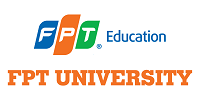Training Objectives
1.1 General objective:
To train bachelors in Information Technology, specializing in Information Systems, with personality and capacity to meet the practical needs of society; to master professional and practical knowledge, to be able to organize, implement and promote creativity in jobs related to the specializations of Information Systems being trained; to be able to pursue studies and research at higher levels. The training program in Information Systems is application-oriented.
The training program aims to:
a) Equip students with basic knowledge of the information technology industry and the methodologies, fundamental and specialized technologies of the specialization;
b) Train students with necessary qualities and skills through a professional working environment, knowing how to apply knowledge of the information technology industry and specialized knowledge to practical work;
c) Provide students with a solid foundation in foreign languages, science, culture, society, promoting initiative and creativity in study, work and life.
1.2 Specific objectives:
1.3. Job positions after graduation:
Students who graduate from the Information Systems specialization can choose jobs such as:
+ Database system administrator;
+ Information system analyst, consultant, designer;
+ Application developer for information systems;
+ ERP, CRM system deployment and operation specialist;
+ Information and knowledge system management.
Program Learning Outcomes
| PLO Name | PLO Description | |
| 1 | PLO1 | Understand basic knowledge of social sciences, political law, national security and defense, contributing to the formation of a scientific worldview and methodology. |
| 2 | PLO2 | Apply solid scientific foundation knowledge in the field of information technology in general and information systems in particular to understand the professional context and acquire in-depth specialized knowledge of information systems. |
| 3 | PLO3 | Apply in-depth specialized knowledge, new technologies in the field of information systems, or expanded knowledge (in fields close to information systems) to work and propose solutions to meet diverse needs from reality. |
| 4 | PLO4 | Have basic knowledge of planning and operating, implementing, and supervising the implementation of plans for specialized work in the field of information systems. |
| 5 | PLO5 | Have a mindset about startups and apply startup knowledge and skills to implement a startup project; have creative thinking, research skills, critical thinking and problem solving. |
| 6 | PLO6 | Have intermediate English proficiency equivalent to level 4 according to the 6-level foreign language proficiency framework for Vietnam, and be able to communicate simply in Japanese. |
| 7 | PLO7 | Have the ability to communicate and present to clearly state the problem to be solved and convey knowledge and skills when performing specific/complex professional tasks related to information systems. |
| 8 | PLO8 | Have the ability to program and use tools to design, build, and manage information systems. |
| 9 | PLO9 | Have the ability to update and exploit advanced tools and techniques in the field of information systems in particular and information technology in general. |
| 10 | PLO10 | Develop the ability to work independently as well as work effectively in a team in an academic and practical environment; take personal responsibility and responsibility for the team when performing a professional job. Have the spirit of self-study, lifelong learning, adapt to the continuous changes of technology and society. |
| 11 | PLO11 | Behave professionally, ethically, have social responsibility and a spirit of serving the community; be professionally responsible and have integrity in work. |
| 12 | PLO12 | Strong in spirit and physical strength, demonstrate national identity, confident in international integration. |
| 13 | PLO13 | Be able to plan, coordinate, and manage resources related to information systems projects; guide and supervise the implementation of project tasks and at the same time, be able to evaluate the effectiveness of the project and propose feasible and effective solutions for improvement. |
Total knowledge volume of the entire course
145 credits, not including preparatory English, National Defense Education, compulsory and elective training activities.
Admission subjects
– According to the admission regulations for regular universities and colleges of the Ministry of Education and Training.
– According to the admission regulations of FPT University.
Training process, graduation conditions
The training process and graduation conditions are regulated according to the current ” Ungraduate Accademic Regulations” of FPT University.
Evaluation method
The assessment method is regulated according to the current “Ungraduate Accademic Regulations” of FPT University.



